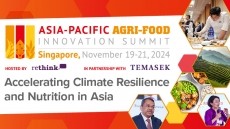Yakult’s China sales hit by COVID-19 impact and Lunar New Year hiatus

Bottle sales decreased by 10% in February compared to the same period last year.
In China, Yakult is sold through home delivery and retail channels. Home delivery sales account for around 10% of total bottle sales. Retail including independent stores and hypermarkets/supermarkets make up 35% and 50% of bottle sales respectively.
In an interview with NutraIngredients-Asia, Hideki Maruyama from the public relations department at Yakult Honsha, the decrease in sales over the first two months was attributed to the Lunar New Year holiday coupled with the outbreak.
“In our home delivery channel, there was impact from the spread of COVID-19 and sales activities were not conducted during the Lunar New Year holiday or the month of February,
@For our retail sales channel, many of the independent stores were unable to restart business in February, and some also faced significant restrictions such as the shortening of store hours.”
Japan sales
However in Japan, bottle sales were not affected.
Maruyama told us: “Bottle sales for the month of January dropped 2% to reach 98.0% year-on-year. For February, while it is not clear if it is owed to the spread of COVID-19, bottle sales are expected to slightly exceed those of last year.”
He highlighted that local media in Japan had been reporting that lactic acid bacteria may be beneficial against COVID-19, which might influence the company’s sales performance.
He stressed that “While Yakult’s Lactobacillus casei strain Shirota has been shown to have immunoregulatory actions, we do not have any evidence regarding COVID-19.”
Data on Yakult Japan’s February sales will be available at the end of March.
In an official press release by Yakult Honsha, the company reported no impact on sales in Singapore, Malaysia, US and Europe.
Production and future
While COVID-19 had an impact on sales in China, Maruyama said production in both Yakult’s facilities in Japan and China had not been affected.
In fact, “In China, Yakult is recognised as a daily essential item, and there were no stoppages in production,” he said.
In February, Yakult China made a donation of about RMB 140 million (USD 20 million), consisting of a monetary donation of RMB 3 million (USD423,000) to the Shanghai Charity Foundation and 2.5 million bottles of Yakult for local municipalities and hospitals in China. In addition, the company also donated 30,000 facial masks to local municipalities.


















